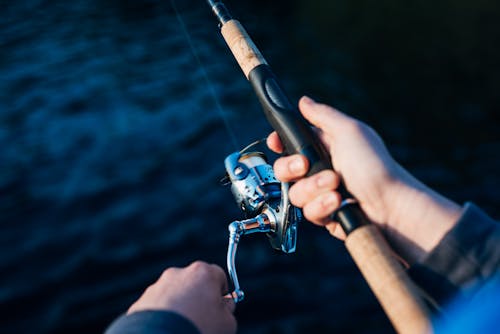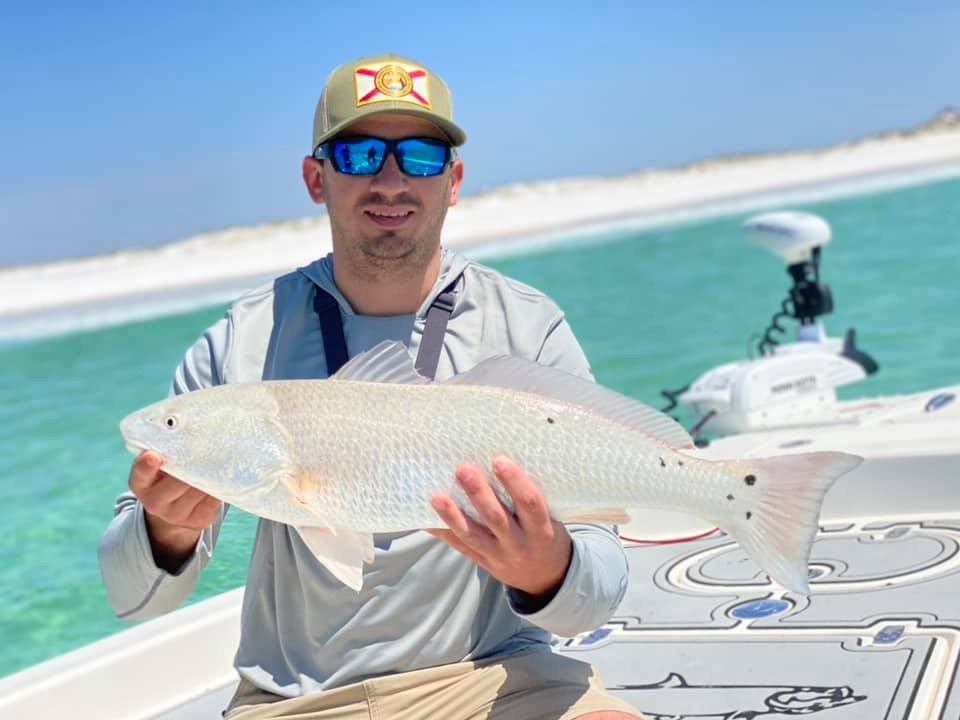How Fishing Can Make You a More Patient Person
In today’s fast-paced world of instant gratification and constant notifications, patience is becoming a rare and valuable trait. Many people seek ways to slow down, decompress, and reconnect with themselves. Interestingly, one of the most timeless and rewarding activities that fosters patience is fishing.
Fishing is more than a way to catch dinner or enjoy a day at the lake — it’s a discipline, a practice of mindfulness, and an exercise in self-restraint. Whether you’re standing knee-deep in a river, sitting in a quiet boat on a lake, or casting a line off the shore, the act of fishing requires a calm mindset and the willingness to wait, often for long stretches of time, with no guarantee of success.
So how exactly does fishing make you a more patient person? Let’s dive into the emotional, psychological, and even spiritual benefits of this peaceful pastime.

Fishing Forces You to Slow Down
In fishing, there’s no rushing the process. You can’t force the fish to bite. You can’t hurry the weather, the wind, or the water. All you can do is prepare your gear, cast your line, and wait. This inherent slowness trains your brain to accept that not everything is within your control — a core principle of patience.
While you wait, you’re encouraged to observe. The gentle ripple of water, the rustle of trees, the birdsong in the distance — these sensory experiences ground you in the moment and help your mind shift from chaos to calm. With repeated practice, your tolerance for waiting expands, and the need for immediate outcomes begins to fade.
The Anticipation Builds Emotional Control
Waiting for a bite can be suspenseful, especially after hours without a nibble. However, fishing teaches you to manage that anticipation and stay composed. The emotional rollercoaster — hope, excitement, disappointment — becomes a kind of internal training ground. You begin to regulate your feelings more efficiently, becoming less reactive and more emotionally balanced over time.
This emotional control doesn’t just stay at the water’s edge. It translates into daily life — in traffic jams, long lines, frustrating meetings — where you become less likely to lose your temper and more likely to wait with grace.
Fishing Develops Consistency and Discipline
Fishing rewards those who show up consistently. Whether you’re a weekend angler or a seasoned pro, catching fish often comes down to showing up, trying again, learning from failure, and repeating the process. This repetition breeds discipline — and with discipline comes patience.
Learning how to cast properly, understanding how different lures or baits work, studying the behavior of different fish species — all of these require practice and persistence. There’s no shortcut to mastering fishing, and the more time you invest, the more it teaches you that good things really do come to those who wait.

Failure is Part of the Process
Not every fishing trip ends with a catch. In fact, some of the most experienced anglers will tell you that they’ve had countless outings where they didn’t reel in a single fish. But they keep going back.
Why? Because fishing teaches you that failure is not the end — it’s part of the journey. This acceptance of failure is crucial to developing patience. Rather than seeing a day without a catch as a waste, anglers learn to see value in the experience itself — in the quiet, the focus, the practice. This mindset shift helps people become more resilient and patient in all areas of life.
Fishing Encourages Mindfulness
Patience and mindfulness go hand in hand, and fishing is naturally a mindful activity. You must be present. You’re attuned to the slightest tug on your line, the feel of the rod in your hands, and the sounds of nature around you. In a world full of distractions, this singular focus becomes a form of meditation.
Regularly engaging in such mindful experiences trains your brain to be more present and patient, not just while fishing, but in everyday tasks and conversations.
It Builds a Deeper Connection with Nature
Fishing often brings you into serene environments — lakes, rivers, oceans, and remote locations far from the stress of urban life. These peaceful settings have a calming effect, encouraging reflection and stillness. As you begin to feel more connected to nature, you naturally adopt its slower rhythm. Trees don’t rush to grow, rivers don’t hurry to flow, and fish don’t bite on demand.
This exposure helps align your inner pace with the patience of the natural world. Over time, the frantic pace of modern life seems less urgent, and your tolerance for delay and stillness increases.
Fishing Teaches the Value of Process Over Outcome
One of the most profound lessons fishing teaches is to value the journey over the result. While catching a fish is certainly satisfying, many seasoned anglers will say that the act of fishing itself — the preparation, the waiting, the quiet moments — is more meaningful than the catch.
This shift in perspective can be transformative. When you start to value the process, whether in fishing or life, you become more patient with your goals, relationships, and personal growth. You stop rushing to the finish line and start appreciating each step along the way.
It Can Strengthen Relationships and Shared Patience
Fishing is also a social activity. Many people learn to fish from parents, grandparents, or friends. Sitting silently together, waiting for a catch, builds a kind of shared patience that strengthens bonds. Conversations during fishing are often unhurried and meaningful, shaped by the pace of the environment.
This practice of being together without the pressure of constant activity fosters deeper, more patient communication skills. You learn to listen more, speak less, and enjoy the presence of others without needing to fill the silence.

Fishing Improves Mental Health — and Patience Follows
Studies have shown that fishing can reduce stress and anxiety. The combination of nature, mindfulness, and physical stillness helps lower cortisol levels and boost mood. A relaxed, healthier mind is naturally more patient. You become more forgiving of yourself and others, more tolerant of delays, and better able to handle life’s inevitable frustrations.
Fishing is a quiet teacher. It doesn’t lecture or demand. Instead, it offers lessons through experience, through stillness, through waiting. In a world where time feels like a luxury, fishing gives us permission to slow down — and in doing so, it nurtures the kind of deep, unshakable patience that benefits every part of our lives.
Whether you’re casting a line for the first time or have spent decades beside the water, remember this: each moment you spend fishing is a step toward becoming a more patient, balanced, and mindful person. And that’s a catch worth keeping.
Book Your Fishing Charter
LET’S GET STARTED
